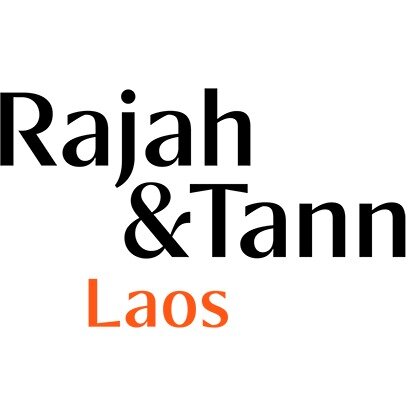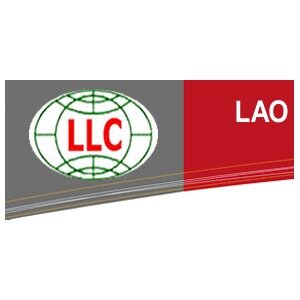Best Public-Private Partnerships (PPP) Lawyers in Vientiane
Share your needs with us, get contacted by law firms.
Free. Takes 2 min.
List of the best lawyers in Vientiane, Laos
About Public-Private Partnerships (PPP) Law in Vientiane, Laos
Public-Private Partnerships, often referred to as PPPs, are collaborative agreements between government entities and private sector organizations. In Vientiane, Laos, PPPs are commonly used for infrastructure, utilities, health services, education, and transportation projects. These partnerships allow the government to leverage private sector investment, expertise, and efficiency while maintaining oversight and public benefit. Lao PPPs are typically governed by national legislation, local regulations, and contractual agreements tailored to each project.
Why You May Need a Lawyer
Legal assistance is crucial in PPP projects due to the complex intersection of public interests and private investments. Here are some common situations where legal help is essential:
- Reviewing and negotiating PPP project agreements and contracts
- Navigating licensing, permitting, and regulatory compliance in Laos
- Conducting due diligence and risk assessment for investors and developers
- Addressing land use rights, acquisition, and environmental regulation issues
- Resolving disputes between public and private parties
- Understanding local content requirements and foreign investment rules
- Ensuring tax and fiscal compliance for PPP projects
- Protecting intellectual property and proprietary technologies involved in the project
Expert legal advice can help safeguard your interests, minimize risk, and enhance the success of a PPP project in Vientiane.
Local Laws Overview
Public-Private Partnerships in Vientiane, Laos, are primarily regulated by national laws such as the Law on Public-Private Partnerships (PPP Law) and related governmental decrees. Here are some key aspects of the local PPP legal framework:
- The PPP Law defines the types of eligible projects, including but not limited to transport, energy, water supply, wastewater, and social infrastructure.
- PPP projects typically require approval from relevant ministries and must align with national and local development plans.
- The government may offer incentives, including tax breaks or guarantees, to encourage private sector participation.
- Risk allocation, contract duration, and profit-sharing mechanisms are negotiated case by case and must comply with both local regulations and international standards.
- Environmental, social, and governance (ESG) standards are increasingly important in project implementation.
- Foreign investors must comply with specific rules regarding investment registration, use of land, and repatriation of profits.
- Dispute resolution mechanisms can include mediation, arbitration, or recourse to local courts, as specified in each PPP agreement.
Staying up-to-date with these laws and understanding how they apply to your specific project is critical for successful PPP implementation in Vientiane.
Frequently Asked Questions
What is a Public-Private Partnership (PPP) in Vientiane, Laos?
A PPP is a long-term collaboration between a government entity and a private company aimed at delivering public services or infrastructure. In Vientiane, these projects often include roads, bridges, hospitals, water treatment plants, and more.
What are the main steps in initiating a PPP project in Vientiane?
The process includes identifying an eligible project, conducting feasibility studies, seeking government approvals, negotiating contracts, and meeting regulatory compliance requirements.
Are foreign companies allowed to participate in PPP projects in Laos?
Yes, foreign entities can participate, but they must comply with investment registration, ownership, and operation laws specific to Laos.
How are risks and rewards shared in a PPP agreement?
Risk and reward sharing depends on the negotiation between the public and private parties. Typical arrangements allocate construction, operational, financial, and regulatory risks according to each party’s expertise and capacity.
What happens if disputes arise during a PPP project?
PPP agreements usually specify dispute resolution mechanisms, which may include negotiation, mediation, arbitration, or litigation in Lao courts.
Which government agencies oversee PPP projects in Vientiane?
Key agencies include the Ministry of Planning and Investment, the Ministry of Finance, and sector-specific ministries such as the Ministry of Public Works and Transport.
Are there incentives for private investors in PPPs in Laos?
The government may provide incentives, such as tax exemptions, customs duty waivers, or land access, depending on the nature and importance of the project.
What legal due diligence should I conduct before entering a PPP?
It is essential to review land tenure, regulatory compliance, licensing, environmental impact, and government permits, as well as the financial health and track record of all project parties.
How is land acquisition handled in PPP projects?
Land for PPP projects is typically obtained or leased through agreements with the government, and acquisition must comply with Lao land laws and respect local land use rights.
Can PPP contracts be terminated early?
Yes, early termination is possible under conditions stipulated in the contract, such as default, force majeure events, or mutual agreement. The contract should outline compensation and dispute procedures in such cases.
Additional Resources
If you need more information or support regarding PPP legal matters in Vientiane, consider contacting the following resources:
- The Ministry of Planning and Investment (MPI) - oversees investment procedures and approvals
- The Ministry of Public Works and Transport - handles infrastructure-related PPPs
- The Ministry of Finance - involved in fiscal planning and incentives
- Vientiane Department of Planning and Investment - manages local project coordination
- Lao National Chamber of Commerce and Industry - supports business networking and advocacy
- Licensed legal firms in Vientiane experienced in PPP projects
Next Steps
If you are considering participating in a PPP project or require legal advice on any aspect of Public-Private Partnerships in Vientiane, Laos, consider the following steps:
- Gather project details and identify the parties involved
- Conduct preliminary research on sector-specific regulations
- Consult with an experienced PPP lawyer or legal firm in Vientiane to review your circumstances
- Ensure you have a clear understanding of all legal and regulatory requirements before proceeding
- Prepare all necessary documentation and due diligence materials
- Engage in transparent negotiations with public and private stakeholders
- Follow up regularly with relevant authorities to track progress and compliance
Legal advice tailored to your project can help you navigate the complexities of PPP arrangements in Vientiane, protect your interests, and optimize your project's prospects for success.
Lawzana helps you find the best lawyers and law firms in Vientiane through a curated and pre-screened list of qualified legal professionals. Our platform offers rankings and detailed profiles of attorneys and law firms, allowing you to compare based on practice areas, including Public-Private Partnerships (PPP), experience, and client feedback.
Each profile includes a description of the firm's areas of practice, client reviews, team members and partners, year of establishment, spoken languages, office locations, contact information, social media presence, and any published articles or resources. Most firms on our platform speak English and are experienced in both local and international legal matters.
Get a quote from top-rated law firms in Vientiane, Laos — quickly, securely, and without unnecessary hassle.
Disclaimer:
The information provided on this page is for general informational purposes only and does not constitute legal advice. While we strive to ensure the accuracy and relevance of the content, legal information may change over time, and interpretations of the law can vary. You should always consult with a qualified legal professional for advice specific to your situation.
We disclaim all liability for actions taken or not taken based on the content of this page. If you believe any information is incorrect or outdated, please contact us, and we will review and update it where appropriate.












